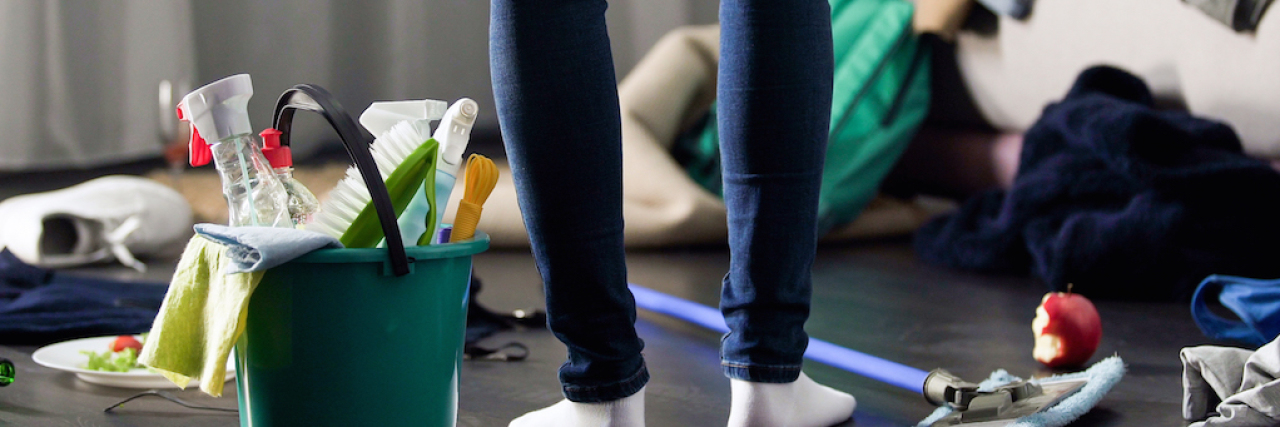The Life-Changing Magic of Being Realistic About Cleaning When You Have Chronic Illness
For many people, housekeeping is an important standard of gauging how well someone has their life together. Those of us with chronic illness understand that housekeeping can feel (or be) almost impossible when you have no way of really keeping on top of things. We read books and watch shows like “Tidying Up With Marie Kondo” and sigh wistfully because we cannot imagine tearing everything out of a single room, putting it in a pile and then ever getting it put away again.
The good news is that while those large cleaning sprees and major events might feel beyond our reach, if we look at the whole, there are ways we can declutter our lives and pare down on things we don’t need without undertaking the dreaded “spring cleaning” or purging everything at once.
Here are some tips on handling housecleaning for those of us living with chronic illness:
1. Small Pieces
Start your work in one place. Clean off your desk (I just got rid of some candles I’d burned out and hadn’t thrown away yet). Sort the papers you have on the kitchen table. Clean the stove top. Pick a single thing and really give it a go. If you want to do more than a single thing, use a timer so you don’t get carried away and throw yourself into a flare. Try 15 minute increments and evaluate (honestly) how you feel when the timer goes off.
2. Learn To Let Go
This can be really difficult for those of us who are lower income or who struggle, but letting go of items that no longer serve you is important. The less stuff you have, the cleaner your space can be (and nobody has energy to dust off all the knickknacks). That isn’t to say you need to get rid of things you really treasure, but if you hold something and it doesn’t give you a thrill of joy, it may be time to let it go. While I might not use every aspect Marie Kondo’s method, this piece of advice really struck a chord with me, and I think it’s valuable for all of us.
3. Learn What Cleaning Products You Can Use
For some of us (like those who live with migraines, allergies or asthma), specific cleaning products can cause awful reactions. One of my housemates is allergic to bleach, which means we have to be careful what we use to clean with. If you have issues with certain ingredients or scents, be careful what you purchase and learn what works best for you. Also, there are cleaning products that can make your life infinitely easier! For example, I have an extendable scrub brush I use for the shower so I no longer have to reach or bend. I can sit on my shower chair outside the tub and clean with far less misery than before.
4. Ask For Help
Having a system of support is important, but it doesn’t do anything to help if we don’t use it! It can feel embarrassing to ask for help for things like cleaning your bathroom or doing your laundry, but if you get too far behind and feel overwhelmed, ask a few trusted friends (or family members) to give you a hand. Make a day of it and maybe buy a pizza as a thank you. You aren’t an island, and you shouldn’t feel embarrassed that you need help.
5. Don’t Worry About Perfection
Real talk here — we are probably not going to have homes featured on HGTV pretty much ever unless we hire a professional to do it for us. Liberate yourself from the notion that you need to make your space neat as a pin. Instead, you want to make sure you have room to breathe and possessions you can manage with your current abilities. It’s OK if your living room looks like a disaster after a flare. I’m in the middle of a major pain flare right now, and my living space is a complete disaster. I haven’t emptied the trash, cleaned the cat box or done my dishes in almost a week, and it really shows. It’s tempting to beat myself up over it, but the reality is I can’t do any better. Be kind to yourself.
What other tips do you have for cleaning that you’ve found helpful? Leave me a comment below. I’d love to see what helps you!
Getty image by Motortion

